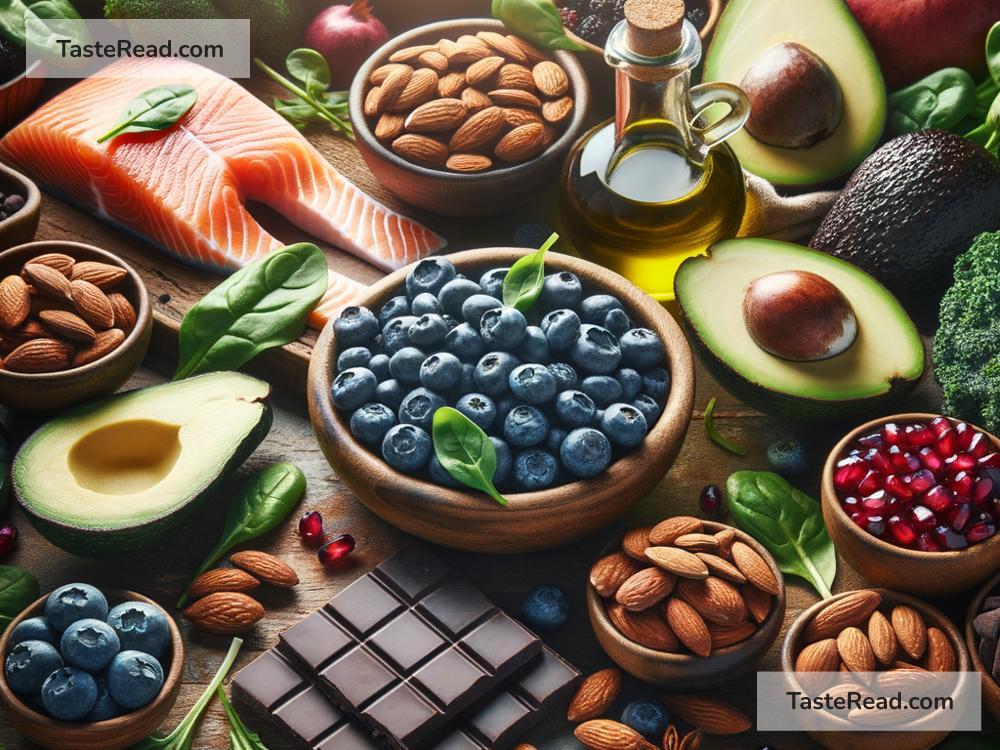Foods That Help Improve Endothelial Function: Eating for a Healthy Heart
The health of your heart and blood vessels depends a lot on something called endothelial function. The endothelium is a thin layer of cells lining your blood vessels, and it plays a key role in keeping blood flowing smoothly, regulating blood pressure, and preventing clots and inflammation. When your endothelium isn’t working properly, your risk for heart disease, stroke, and other health problems goes up. The good news is, your diet can help! Certain foods are known to enhance endothelial function, keeping your heart and blood vessels healthy. Let’s explore these endothelial-boosting foods and how they benefit your body.
Why Endothelial Health Matters
Before diving into foods, let’s understand why endothelial function is so important. Your endothelium helps produce nitric oxide, a molecule that relaxes blood vessels, improves blood flow, and reduces the risk of clots. Poor endothelial function is often linked to unhealthy lifestyle habits, including a diet high in processed foods, sugar, and unhealthy fats. Fortunately, choosing the right foods can repair damage and promote better endothelial health.
1. Leafy Greens: The Nitric Oxide Superstars
Leafy greens like spinach, kale, and arugula are nutrient powerhouses that enhance endothelial function. They are rich in nitrates, natural compounds that your body uses to create nitric oxide. This nitric oxide relaxes and widens your blood vessels, improving circulation and lowering blood pressure.
For example, studies show that eating spinach and other nitrate-rich vegetables can reduce inflammation and improve artery health. Make leafy greens a regular part of your meals by adding them to salads, smoothies, or omelets!
2. Fatty Fish: Omega-3s for Vascular Health
Fatty fish such as salmon, mackerel, sardines, and trout are full of omega-3 fatty acids, which have powerful heart-protective benefits. Omega-3s reduce inflammation, promote better blood flow, and prevent plaque buildup in your arteries.
Regularly eating fatty fish can improve endothelial function and lower the risk of cardiovascular disease. Aim for two servings of oily fish per week, or talk to your doctor about taking a high-quality fish oil supplement if you don’t eat seafood.
3. Dark Chocolate: A Sweet Way to Support Your Heart
Good news for chocolate lovers! Dark chocolate (at least 70% cocoa) is rich in flavonoids, which are antioxidants that boost endothelial health. Flavonoids support nitric oxide production, helping you maintain flexible and healthy blood vessels.
Just keep portions in check—too much sugar can counteract the benefits. A small piece of dark chocolate, about one ounce, is enough to give your endothelium a boost while satisfying your sweet tooth.
4. Berries: Tiny Fruits with Big Benefits
Berries like blueberries, strawberries, raspberries, and blackberries are loaded with antioxidants and flavonoids that fight oxidative stress and inflammation. These tiny fruits can help your endothelium perform optimally and reduce damage to blood vessel cells.
Berries are easy to add to your diet. Toss them into yogurt, blend them into smoothies, or eat them as a snack. Their bright colors are also a sign of their high nutrient content!
5. Nuts and Seeds: Heart-Healthy Fats
Nuts and seeds, especially walnuts, almonds, chia seeds, and flaxseeds, are high in healthy fats like omega-3s and vitamin E. These nutrients improve endothelial function by reducing inflammation, lowering blood pressure, and supporting artery health.
For a heart-healthy snack, grab a handful of nuts. Nut butters (without added sugar) or smoothies made with seeds are also great ways to enjoy these superfoods.
6. Garlic: The Natural Blood Vessel Helper
Garlic is more than a flavor booster—it’s a natural medicine for your blood vessels. Garlic contains allicin, a compound that increases nitric oxide production. Eating garlic regularly can improve blood flow, reduce blood pressure, and protect your endothelium.
For maximum benefits, crush fresh garlic before cooking, or eat it raw if you don’t mind the strong taste. Garlic supplements are also an option if fresh garlic isn’t your favorite.
7. Green Tea: A Soothing Antioxidant Drink
Green tea is packed with catechins, a type of antioxidant that helps improve endothelial function and supports nitric oxide production. Drinking green tea can also lower cholesterol and blood pressure over time.
Replace coffee or sugary drinks with green tea for a heart-healthy beverage option. A cup or two per day can make a difference for your blood vessels.
8. Whole Grains: Fiber for Vascular Health
Whole grains like oats, quinoa, brown rice, and whole wheat bread are high in fiber, which helps regulate blood sugar and cholesterol levels. High-fiber diets reduce inflammation and protect endothelial function.
Opt for whole grains over refined options. For example, choose whole-grain pasta instead of white pasta, and enjoy oatmeal topped with nuts and berries for a nutrient-packed breakfast.
Final Thoughts: Food as Medicine for Your Endothelium
Your endothelium works hard to keep your blood vessels healthy, but it needs your help to stay strong. A diet rich in vegetables, fruits, healthy fats, and whole grains can make all the difference. Add these foods to your daily meals to support endothelial function and improve your overall heart health.
Remember, small changes add up over time. Eating these heart-friendly foods regularly, combined with exercise, stress management, and avoiding smoking, can keep your blood vessels working like a well-oiled machine. So start today—your heart will thank you!


